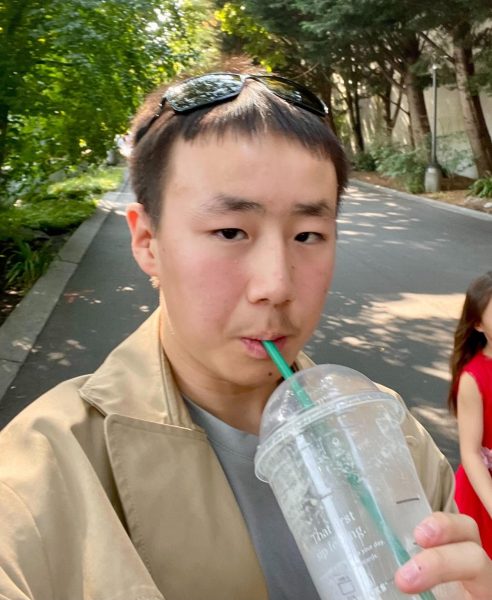Artificial intelligence is dominating headlines wherever you go. There are rumors of AI being used to cheat in school, and on the flip side, there is chatter about how AI can be used as a tool to further education. Either way, nothing revolutionary has swept our school — at least not yet. Mr. de Grys hopes to change that soon with his new AI challenge.
In early November of last year, Mr. de Grys, Lakeside’s academic dean, sent out an email declaring the arrival of AI. Despite the fact that ChatGPT and other generative AI models were already widely known among the student body, it was still surprising to receive an email granting permission to use this new and volatile technology for a school-related event. In the email, Mr. de Grys introduced a challenge that he and several other administrators and teachers had invented. The premise of the competition could be summed up in one sentence: “I hereby give you permission to mess around with AI. Please tell me what you learned.” However, he also stressed the fact that the use of AI is circumstantial and should be discussed with the teacher of whom the use will concern beforehand, with the only exception being this challenge.
Despite this, Mr. de Grys places his trust in the power of AI for good. He remarks that decades ago, the internet was seen as a threat to academic integrity and education as it became widespread. Obviously, we all know how that turned out — you simply can’t go to school without your laptop nowadays.
Going even further back, there was a time when calculators were newfangled. Mr. de Grys notes that back then, “teaching was not as effective [without them].” In a similar vein, he argues that “[AI] is another tool, and if we’re smart about how we use it, it can make our teaching more effective.”
The idea for a student contest involving AI first arose when Mr. de Grys and other administrators were planning a professional development day focusing on AI. The idea was tossed around in the meeting, and soon, the challenge was born. It was the perfect plan for Mr. de Grys, who believes that “people love puzzles, they love games, and they love challenges.”
According to him, such challenges build community and inspire innovation. It also lines up with Lakeside’s mission statement, which includes a commitment to “sustaining a school in which individuals … instruct one another in the meaning and value of community and in the joy and importance of lifelong learning.” Adding on to the mission statement, Mr. de Grys remarks that “at Lakeside, it is true that teachers teach students. But we also want to build a community where teaching and interaction flows in lots of different directions.”
Whereas the goal for students in the AI competition might be the tempting $50 gift card, the goal for Lakeside’s academic dean is “a way to crowd-source new and interesting ways to use AI on campus.” His hope is that students will discover innovative ways to implement AI to make teaching more effective and efficient.
“Teachers are often in this position where we’re supposedly the content experts,” he says. “I think AI is so new that a lot of teachers are still figuring out the best ways to use it. And I think with a lot of new things, especially new technologies, students actually have a much better sense for how to use some of these things than the teachers do.”
Luckily for him, the answers he needed came within three months after the contest’s announcement, in the form of over a dozen submissions. Among the eager contestants, each tackling a certain problem with AI, three stood out — Sanjaya H. ’27, Sienna O. ’27, and Anna F. ’25, were rewarded with gold medals for “Technical Use of AI,” “Innovation and Creativity” and “Outstanding Academic Application” respectively.
Sanjaya, the grand prize winner, took a model for classifying inputs and translated it into Python, testing it on 100,000 essays, so that it could output a binary number that indicated whether it was written by AI. Training took 18 hours straight on his computer. But despite the complex mathematical and technical challenges with AI, Sanjaya insisted that “the data collection was the worst part.”
The other two gold medalists, Sienna and Anna, used AI as a teaching companion. Sienna focused on her love for basketball and used ChatGPT to analyze player statistics from a recent basketball game, form a drill and workout plan for her teammates to prepare for their next game, and design a game strategy for the whole team. Anna, on the other hand, took this chance to turn ChatGPT to a language translator. She explains that “ChatGPT inevitably makes errors because it’s just a language model, not a calculator. So, because ChatGPT is a language model that largely speaks like a native speaker, I thought it would be excellent for people learning languages.” Then, she used AI to explain confusing or complex phrases in Spanish, especially ones that don’t have a direct translation in the language.
From all these exciting submissions came many more promising ideas, so Mr. de Grys is hopeful that this challenge will be held again next year. If all goes well, this could become an annual tradition, and provide challenges and ideas for years to come.

